Frontier Markets Weekly, February 27th 2022
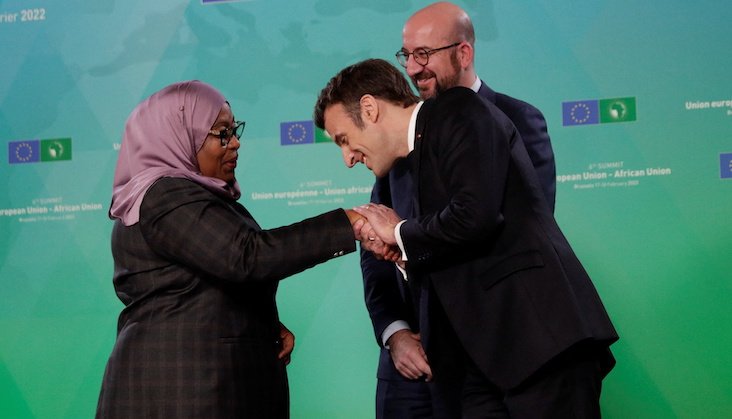
Welcome to the latest edition of Frontier Markets News. I am delighted to announce that Noah Berman has joined the newsletter team covering Asia and beyond. Noah is a recent graduate of Georgetown University, where he studied Government and Spanish. He previously worked as a fact checker for CQ Roll Call.
As always, I would love to hear from you at dan@frontiermarkets.co with news ideas, feedback and anything else you find interesting.
If you’d like to receive this newsletter in your inbox every weekend, sign up at FrontierMarkets.co. Please also share this link with any friends or colleagues you think would enjoy it.
Global
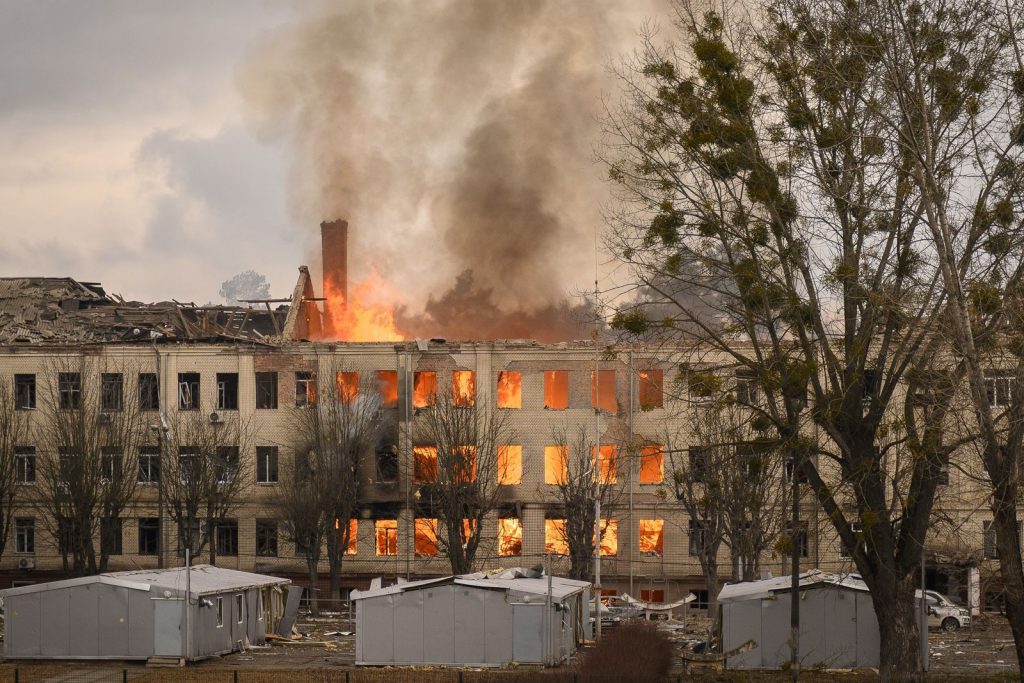
It might seem like a European story, but Russia’s unprovoked, utterly illegal and despicable attack on Ukraine this week is one of the most global stories we have ever covered. No corner of the world will be unaffected by the actions of a Russian president who has broken the hearts of many of his compatriots who believe Russia should be playing a responsible and important role in a modern global future.
Millions of words have been written, spoken and recorded about what’s happened this week in Ukraine so there is no need to repeat them here. You know the news, you’ve heard the stories of the incredible resilience and determination of Ukraine’s massively outgunned military, and the courage of its untrained volunteer soldiers taking to the streets with handguns to face down one of the world’s best equipped military forces. You’ve read about the bravery of anti-war demonstrators protesting on the streets of Russia, in the face of near-certain arrest and who knows what kind of persecution to follow.
If you have the stomach for it, read everything you can from reputable news organizations such as the BBC, the Wall Street Journal, the NY Times, The Guardian, Deutsche Welle, France24, Reuters and CNN. Let your outrage build until you can contain it no more and feel compelled to do something. Because this is not just about Ukraine and one unhinged and isolated dictator fixated on righting some perceived historical injustice. How the world responds to Russia’s invasion of Ukraine will determine the future course of the global community.
I know some of you are leaders and policymakers—you are in a position to change the course of countries, businesses, political parties.
I urge you to stand up. Be a part of this—take this moment to help chart a course to a better, more cooperative and peaceful global future. Recognize this moment for what it is: the precise point in history where we got to choose between peace and violence, between love and hate.
If you want peace, you have to be prepared to fight for it, in whatever way you can.
Stand up.
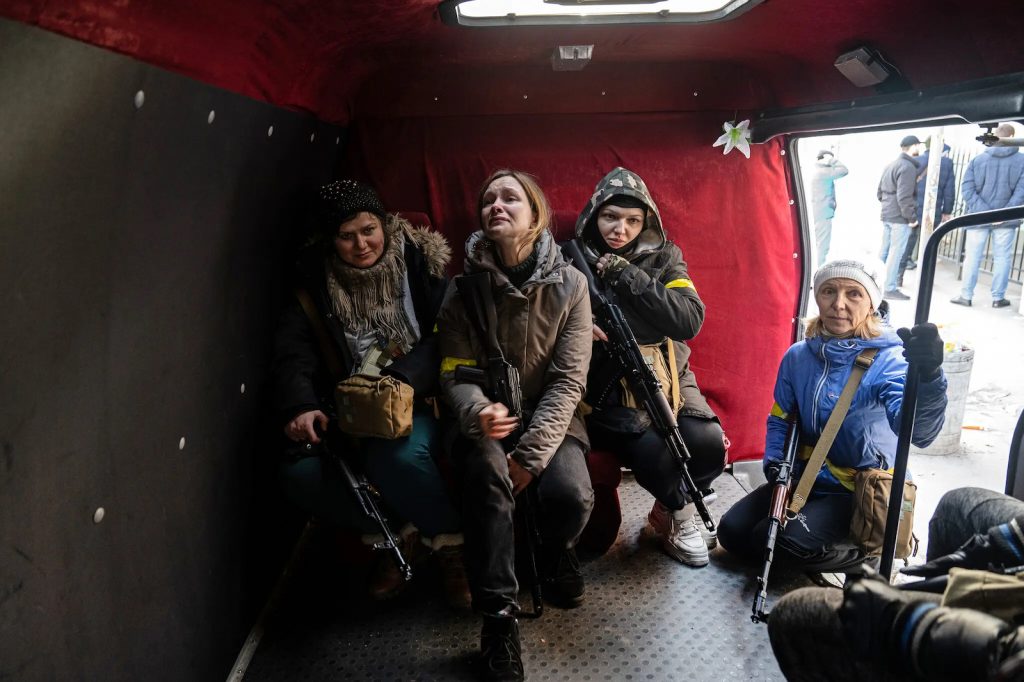
Africa
Tanzania and other African nations see opportunity in conflict-driven energy spikes. As gas prices surged this week, Europe faced the prospect of a massive shortage with estimates that the EU would need to find new sources for up to 40% of its energy consumption if Russia cuts supply. The shakeup provides an opportunity for some emerging oil and gas producers in Africa.
This week President Samia Suluhu Hassan of Tanzania told the Africa Report that Russia’s aggression against Ukraine was helping to generate European interest in Tanzania’s gas reserves, which are the sixth largest in Africa.

Other African nations stand to benefit, too. Ghana and Uganda, for example, have struggled to capitalize on their natural resources but could see renewed interest in their production potential. Heavily indebted producers Angola and Nigeria are also expected to see increased demand from Europe. —Ken Stibler
African economies expect mixed impact from Ukraine invasion. Africa’s commodity exporters stand to benefit from the Russian invasion of Ukraine, the BBC reports, as gold, oil and aluminum prices rise in response. The crisis will “directly benefit export and government revenues in Nigeria, Angola, Ghana, Mozambique, South Africa and Tanzania,” the news organization said. Manufactured exports, though, could suffer if the turmoil prompts a slowdown in Europe’s economies.
African economies expect mixed impact from Ukraine invasion. Africa’s commodity exporters stand to benefit from the Russian invasion of Ukraine, the BBC reports, as gold, oil and aluminum prices rise in response. The crisis will “directly benefit export and government revenues in Nigeria, Angola, Ghana, Mozambique, South Africa and Tanzania,” the news organization said. Manufactured exports, though, could suffer if the turmoil prompts a slowdown in Europe’s economies.
The BBC also warned that inflation could rise—particularly for food—and currency volatility could increase.
North Africa’s economies could be hit especially hard by the invasion of Ukraine, the New York times reports. “In Egypt, the world’s top importer of wheat, the government was moving in the wake of the Russian invasion to find alternative grain suppliers,” the Times reports. “In Morocco, where the worst drought in three decades was pushing up food prices, the Ukraine crisis was set to exacerbate the inflation that has caused protests to break out. Tunisia was already struggling to pay for grain shipments before the conflict broke out; the war seemed likely to complicate the cash-strapped government’s efforts to avert a looming economic collapse,” the Times wrote.
Asia
EU imposes more sanctions on Myanmar. The EU released a fourth round of Myanmar sanctions on Monday, targeting the military junta that has ruled the country since it seized power in a coup a year ago. The new sanctions will target 22 officials and four companies aligned with the military, including the highly profitable state-run energy company, Myanma Oil and Gas Enterprise (MOGE), DW reports.
MOGE co-owns gas production facilities with western companies, including Chevron and French energy giant TotalEnergies. The junta expects MOGE to generate over $1 billion in revenue this year and provide half the government’s foreign currency revenue.

The junta is in the midst of a trial at the International Court of Justice, where it is charged with genocide against the Rohingya Muslim minority. On Thursday, the country’s military seemed undeterred by both sanctions and the trial, deploying ground troops and initiating a barrage of artillery and airstrikes against rebels in the country’s east. Myanmar Now reports three civilian casualties in the eastern state of Kayah. —Noah Berman
Sri Lanka hopes to relieve debt crisis with Indian aid. India foreign minister Subrahmanyam Jaishankar announced on Wednesday that the country is willing to make an investment deal to help alleviate Sri Lanka’s debt crisis, Reuters reported.
In January, India announced a $900 million loan to Sri Lanka. Finance minister Basil Rajapaksa is expected to formalize the deal during his visit to India next week, The Hindu reports.
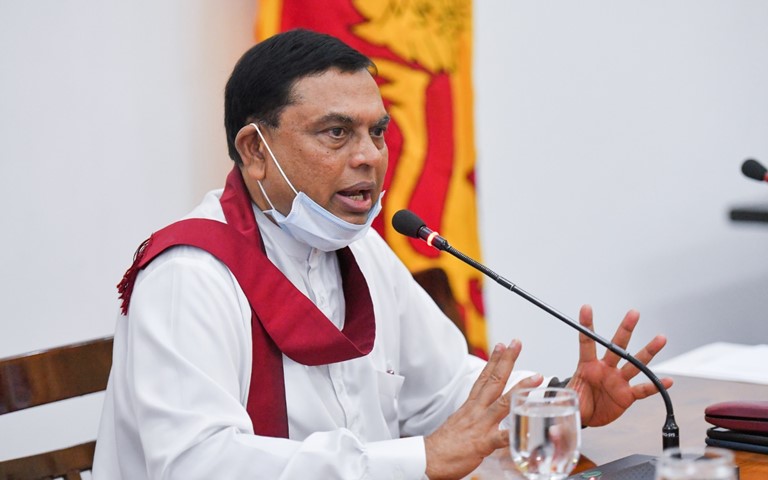
The pressure on Sri Linka is mounting, as the country struggles to pay for the gas that powers its electrical grid. Inflation has hit a record high of 25%, and food and fuel prices have surged, France24 reports. The country paid $35 million for a diesel shipment on Wednesday, and a payment of $33 million was due when a second diesel-carrying ship was expected to dock in Colombo on Sunday. Experts estimate Sri Lanka’s foreign exchange reserves to be $2.6 billion (compared with $7.5 billion in January 2020) with usable reserves of $790 million. The country owes $1.84 billion in liabilities due by the end of March, and $4 billion by the end of the year. —Noah Berman
Vietnam poised to open borders amid fuel shortage. Vietnam’s economic woes are being aggravated by a fuel shortage, exacerbated by high prices and inflationary pressure, VN Express reports. On Monday, gas prices reached a record high of VND 25,530 ($1.12) per liter, and close to 300 gas and oil retailers have halted sales this week, Bloomberg reports.
The price rises are piling pressure on an economy already struggling from a pandemic-driven decline in tourism. In 2019, tourism accounted for 9.2% of the country’s GDP, falling to nearly zero after the country closed its borders to tourists in March 2020. Vietnam’s GDP growth rate remained low at 2.58% in 2021, compared to an average of 6.76% in the five years preceding the pandemic, according to data from the World Bank.
The country’s reopening plan has lagged behind its highly trafficked southeast Asian peers as it has dealt with a surge in cases due to the Omicron variant. Cambodia reopened for tourists on November 15 last year, and Thailand began admitting tourists on February 1. —Noah Berman
Middle East
Iran nuclear talks enter final stretch. Iran, the US and other world powers are nearing a deal to revive a 2015 agreement that curbs Tehran’s nuclear work in return for relief from international sanctions, the Wall Street Journal’s Laurence Norman writes. Negotiators are still wrangling over some significant final demands from Iran, but the delegations have in recent weeks made the most significant progress since talks to revive the deal began in April 2021.
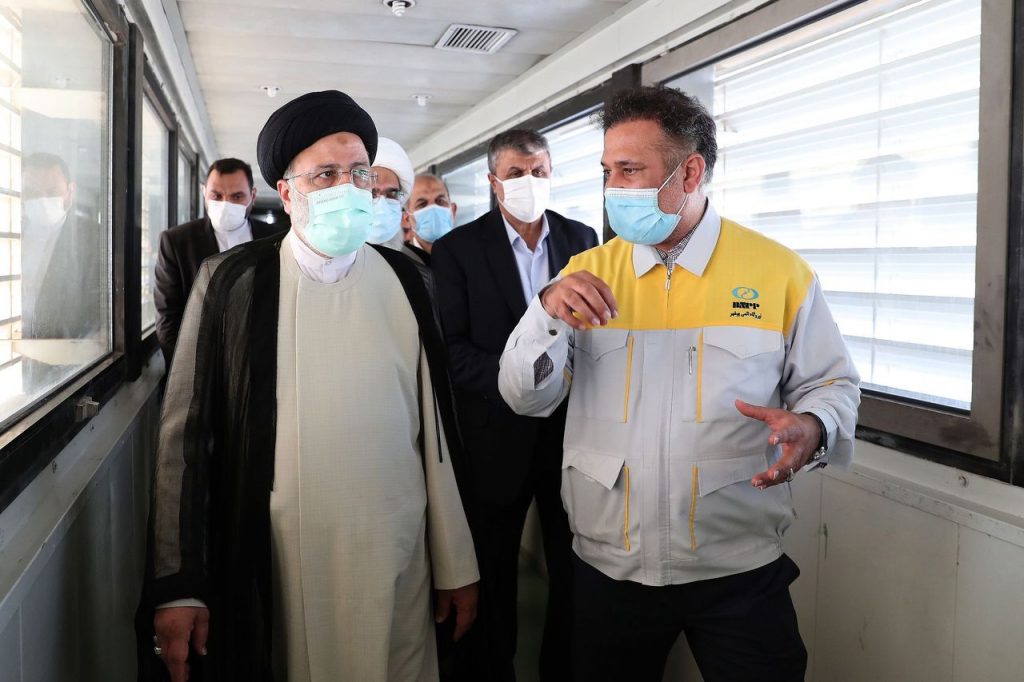
Officials involved in the talks say an agreement could be imminent. Reviving the 2015 accord, which former President Donald Trump exited in 2018, is a top foreign policy goal of the Biden administration.
The Biden administration says it wants to restore the agreement and then use that as a platform to negotiate a longer, stronger agreement. Tehran has repeatedly criticized the Biden administration for keeping in place the Trump-era sanctions even while seeking to restore the deal.
Europe
Russian financiers could turn to crypto to sidestep sanctions. Experts believe Russia could use cryptocurrencies to bypass US- and European-imposed sanctions targeting Russian banks, technology companies and aerospace operators—a wide swath of the country’s economy—following Russian President Vladimir Putin’s unprovoked invasion of Ukraine, Casey Wagner writes in Blockworks.
Leah Wald, CEO of crypto asset manager Valkyrie Investments, said “the likelihood they could make such a pivot is very high.” Using digital assets instead of US dollars would likely be a violation of the sanctions, legal experts say, but decentralized exchanges and marketplaces in other countries might offer a workaround.
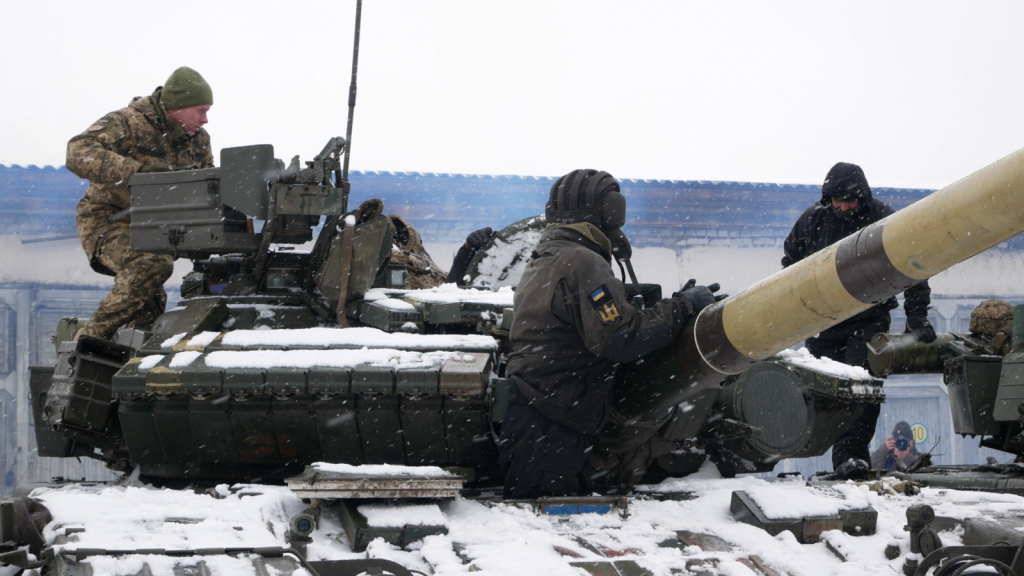
“As long as they don’t use a US-regulated entity to purchase and move the crypto, I don’t think that it would be difficult [to avoid sanctions],” said David Tawil, president of crypto hedge fund firm ProChain Capital. Employing a number of different exchanges would also make it easier for Russian financiers to cover their tracks, according to Wald, a former World Bank analyst.
“Russian companies could quite easily use Russia-based exchanges or brokers as fiat on-ramps, and then transact in crypto across multiple decentralized exchanges or through other tools meant to conceal the source of funds,” she said.
Latin America
Kremlin cronies forced to choose sides after Russian invasion of Ukraine.Vladimir Putin’s attack on Ukraine is having an important side-effect in Europe: It’s forcing a gaggle of increasingly illiberal and pro-Russian regimes in countries including Hungary, Poland, and the Balkan states to choose between the EU and Russia.
So far, it appears the EU is winning. The Kremlin-friendly Hungarian government of Viktor Orban, for example, has aligning with the broader EU position on Russian sanctions, Balkan Insights reports. The Czech government, despite its pro-Russian President Milos Zeman, also swiftly condemned Russia’s actions.
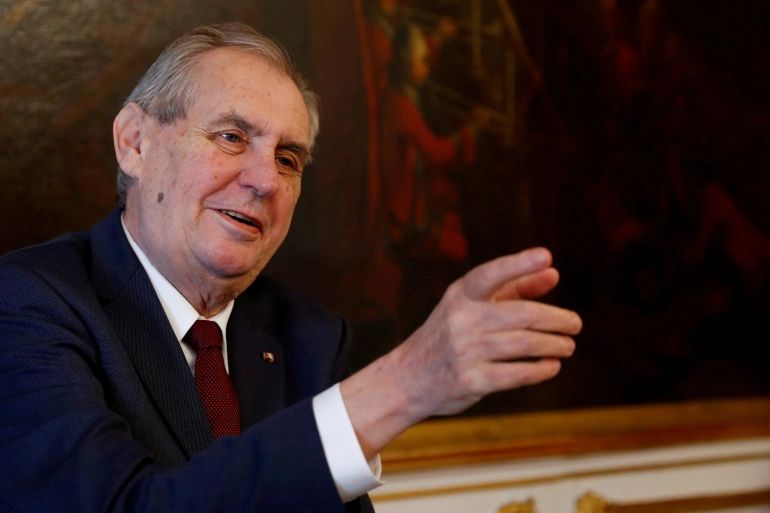
Poland, which has been in a tussle with the EU over judicial independence, was unequivocal in its condemnation of Putin’s aggression, too. But while Serbia’s President Vucic has attempted to carve a middle path that doesn’t include sanctions, increased European alignment suggests that Putin has prompted unity rather than dissent among Russia’s western neighbors. —Ken Stibler
Latin America
Despite rush of diplomacy, Latin American countries take a tepid stance on Russia. Following a flurry of diplomacy between Moscow and Latin American countries in 2022, governments including Colombia, Argentina, and Chile called for a swift withdrawal of Russian troops, condemning this week’s invasion of Ukraine.
However, as the Foreign Policy’s Catherine Osborn reported, several countries were caught in a bind between their anti-imperialist instincts and non-interventionist tendencies. Mexico, Peru, and Paraguay stopped short of condemning Russia in their calls for peace, dialogue, and a ceasefire.
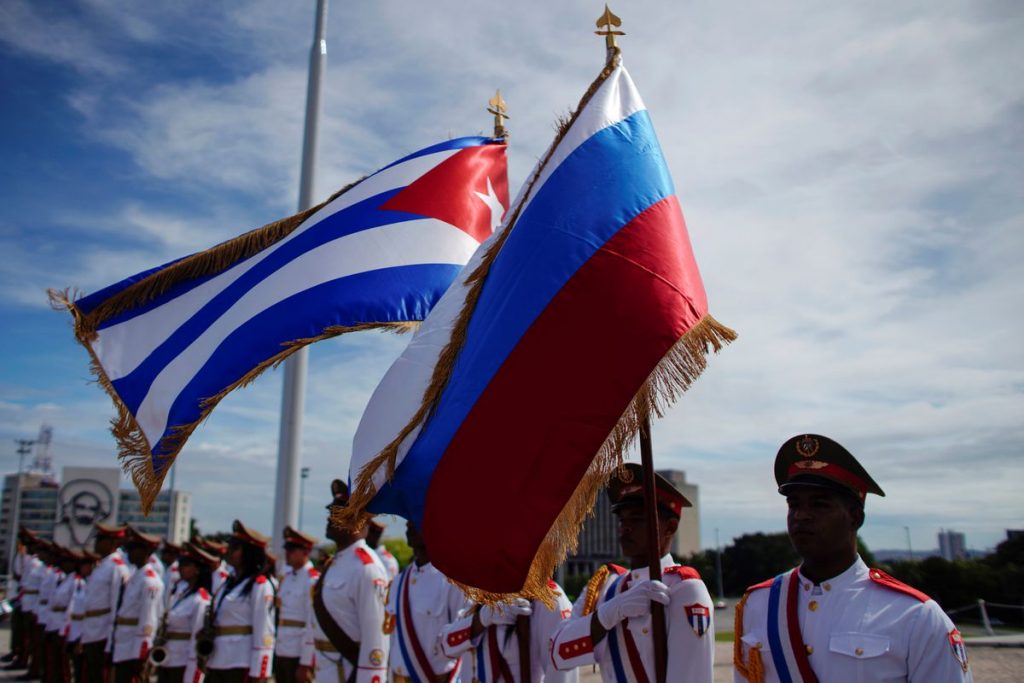
Russia’s strongest allies in the region—Cuba, Nicaragua and Venezuela each made clear their support for Putin. And in a move that seemed to recognize the importance of Moscow’s long-standing Latin American allies, the Russian Duma voted to postpone payments from Cuba on around $2.3 billion in loans. Tuesday’s move came days after the two countries announced a deepening of their partnership. —Ken Stibler
Oil-price surge powers Venezuela’s oil sector recovery. As oil prices surge to over $100 amid geopolitical pressure and recovering global demand, Venezuela’s oil industry is mounting an unforeseen recovery, reports Bloomberg’s Fabiola Zerpa. Production fell from 3 million to 374,000 barrels per day (BPD) between 1990 and 2020 amid sanctions and crumbling infrastructure, but has risen to around 800,000 BPD this year.
This represents $11 billion in oil revenues and a 38% increase from 2020, according to estimates from Caracas-based consultancy Ecoanalitica. The remarkable turnaround for the dilapidated energy sector has been enabled by partnerships with China, Russia, and Iran for critical inputs, and buyers willing to risk US sanctions.
Caracas imports condensate from Iran to help it thin out its thick crude for transport. Local contractors have taken the place of oilfield service companies, and an army of intermediaries work to ensure it reaches the principal buyer, China. Such cooperation is likely to continue as uncertainty in Russian supply has promoted a hunt for available supplies. —Ken Stibler
Paraguayan president sacks cabinet again over crime and corruption. Paraguayan President Mario Benitez reshuffled his cabinet for the second time this week, Bloomberg reports, after an international sting on the cocaine trade that has implicated dozens of political figures so far. On Tuesday, the president fired the heads of the National Emergency Agency and Interior Ministry following local media reports of corruption and ties to organized crime.
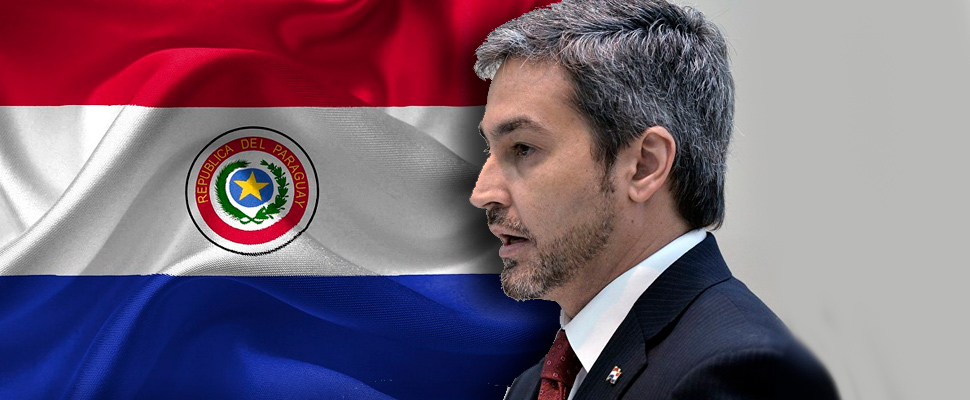
What was described as “the biggest operation against drug trafficking and money laundering in Paraguay’s history” comes on the heels of Paraguay’s growing role as a vital crossroads for the cocaine trade, Insight Crime reports. The landlocked country increasingly serves as a home base for traffickers and gangs from Brazil, and cocaine exporters are using the country’s river ports as logistics hubs.
The government has struggled to contain criminal organizations from both outside and inside Paraguay. Illicit organizations have infiltrated the country’s political establishment, with a congressman protecting major traffickers, a president’s son taking part in transatlantic smuggling, and a former president helping a Brazilian drug lord avoid arrest. —Ken Stibler
What we’re reading
Opinion: America’s interests in stopping Russian destabilization must extend to Africa. (The Hill)
Why crypto is Africa’s next big bet. (Blockworks)
Activists sound alarm over recent arrests of journalists in Ghana. (VoA)
Mali junta files lawsuit against West African monetary sanctions. (Reuters)
Ethiopia’s Abiy inaugurates electricity production at Nile mega-dam. (France24)
Ethiopian PM tells banking sector to get ready for foreign competitors. (Reuters)
Kenya’s UN ambassador slams Russia and compares Ukraine crisis to Africa’scolonial past. (CNN)
Somali leaders reject ‘illegal’ oil deal with US company. (The Frontier Post)
IMF says Somalia funding at risk over election delays. (AlJazeera)
4 UN security officers detained in Central African Republic. (AP)
US and France attack actions of Russian mercenaries in Central African Republic. (AP)
Zambia’s Hichilema backs open-pit mine in national park. (Africa Report)
Sudan exports plunge after protesters block main trade artery. (Bloomberg)
Egypt seeks mediation in Sudan. (Al-Monitor)
Israel looks to increase trade with Morocco to $500 million. (Reuters)
Pakistan’s leader went ahead with Russia visit despite push to isolate Putin over Ukraine. (WSJ)
Three dead, 40 injured in Bangladesh footwear factory fire. (Sourcing Journal)
Myanmar junta turns to China for help policing internet use. (The Irrawaddy)
Malaysian PM discusses Myanmar crisis during Cambodia visit. (AP)
China ready to soften economic blow to Russia from Ukraine sanctions. (FT)
China says Taiwan is ‘not Ukraine’ as island nation raises alert level. (Reuters)
Israel accuses Iran of providing Venezuela with munitions for drones. (Middle East Eye)
Saudi forces ‘destroy Houthi drone’ targeting airport in Jizan. (Al Jazeera)
UAE plans to buy Chinese jets despite US concerns. (South China Morning Post)
UN ends Iraq’s requirement to pay victims of Kuwait invasion. (AP)
Scandal deepens as Lebanon’s central bank chief ducks court appearance. (FT)
Ukraine asks Erdogan to close Turkish straits and airspace to Russia. (BalkanInsight)
China nods to Russia’s interests in attack on Ukraine. (WSJ)
Estonia, Latvia, Slovenia and Romania join nations banning Russian flights from their airspace. (BBC)
Romania ‘could take in 500,000 Ukrainian refugees’ if needed. (Reuters)
Millions in bitcoin pouring into Ukraine from donors. (BBC)
Dominican Republic starts work on border wall with Haiti. (The Guardian)
Colombia’s highest court decriminalizes abortion in historic shift. (WSJ)
Nicaragua convicts seven of President Ortega’s opponents in mass trial. (WSJ)
Debt-for-nature swaps with China could boost Ecuador’s conservation. (China Dialogue)
Historic Brazilian bill regulating crypto heads to senate vote. (Blockworks)
Honduras high court rejects house arrest for ex-president. (AP)


